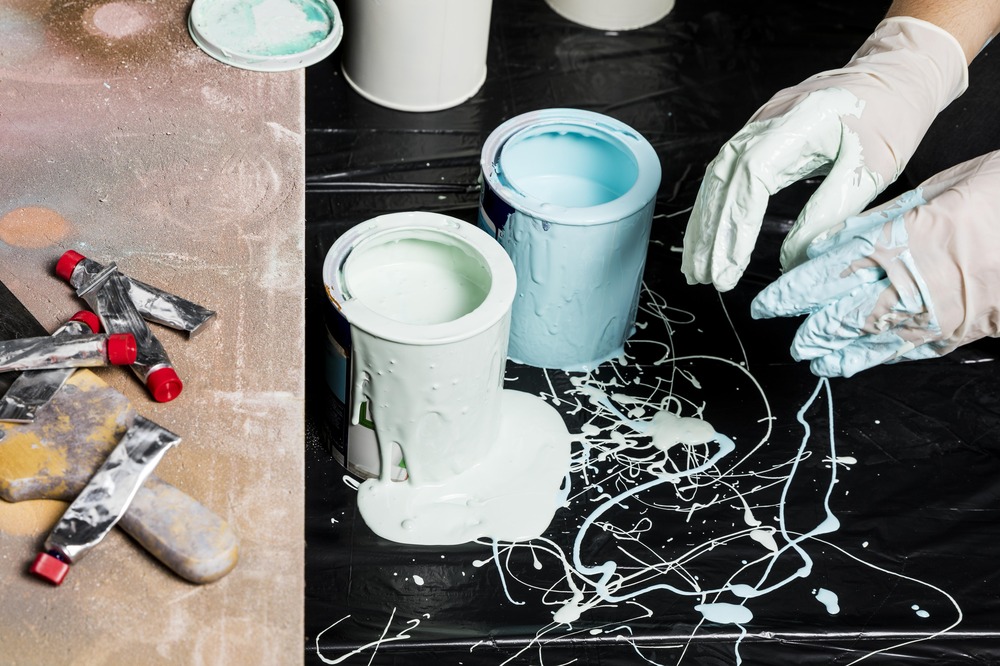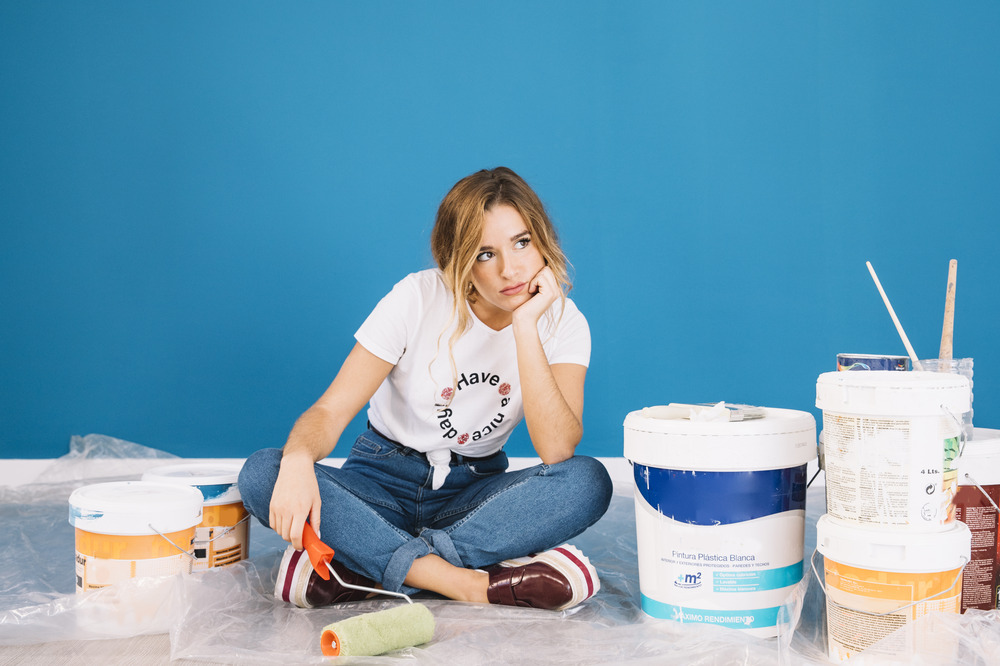Paint longevity is a key consideration for maintaining the appearance and protection of any surface, whether indoors or outdoors. While many factors influence how long a paint job lasts, professional painting companies are equipped to address these concerns with expertise. Their insights help homeowners and property managers choose the right products, ensure proper preparation, and adopt strategies to extend the lifespan of painted surfaces.
Here are six essential questions that painting companies in Westport, CT, can answer to help achieve long-lasting, beautiful results.
Table of Contents
Key Takeaways✔ Paint longevity is influenced by environmental factors, surface preparation, and the quality of paint applied, all of which painting companies address expertly. ✔ High-quality paints with advanced formulations significantly outperform lower-grade options in resisting fading, peeling, and wear over time. ✔ Proper surface preparation, including cleaning, repairing, and priming, ensures strong adhesion and extends the lifespan of a paint job. ✔ The frequency of exterior repainting depends on factors like climate, surface material, and paint type, which painting companies can evaluate. ✔ Routine maintenance, such as cleaning and touch-ups, can greatly prolong the durability and appearance of painted surfaces. ✔ Signs like fading, peeling, or persistent stains indicate it may be time for repainting, which painting companies can assess and address. ✔ Choosing the right painting company involves verifying credentials, assessing experience, and ensuring transparency in communication and estimates. |
1. What Factors Affect Paint Longevity?
Paint longevity depends on several variables that impact how well a surface holds its finish over time. Factors such as climate, surface preparation, and the type of paint used all affect longevity. Painting companies help identify and address these variables to ensure a paint job lasts as long as possible.
Why Do Environmental and Application Factors Matter?
- Climate Conditions Influence Paint Durability: Hot, humid environments can cause paint to blister or peel, while freezing temperatures can lead to cracking. Additionally, direct exposure to UV rays fades colors and weakens the paint film, shortening its lifespan.
- Surface Preparation Ensures Strong Adhesion: Without cleaning or repairing a surface, paint struggles to stick properly. Grease, dirt, and uneven textures create weak spots where paint can peel or chip over time.
- Paint Quality Directly Impacts Performance: High-quality paints often contain additives that resist fading, cracking, and other wear. Lower-grade paints may be more affordable but tend to degrade much faster under the same conditions.
How Can Painting Companies Maximize Paint Longevity?
- Assess Climate-Specific Needs: Painting companies recommend paints specifically formulated to withstand local weather conditions. For example, they may suggest UV-resistant paints for areas with high sun exposure or flexible paints for regions with fluctuating temperatures.
- Thoroughly Prepare Surfaces: Professionals clean and repair surfaces to remove contaminants and smooth out imperfections. They also apply primers that create a strong base for the paint to adhere to, reducing the risk of peeling.
- Advise on High-Performance Products: Painting companies guide clients toward paints with advanced formulas, such as water-resistant or self-cleaning options. These products are designed to endure harsh conditions and maintain their finish for years.
2. How Does the Quality of Paint Influence Durability?
The quality of paint is one of the most important factors affecting how long a paint job lasts. Higher-quality paints are formulated to resist environmental damage and maintain their finish for extended periods. Painting companies provide expert guidance in selecting durable products tailored to specific needs.

Why Does Paint Quality Matter?
- Premium Paints Include Protective Additives: High-quality paints contain UV blockers and weather-resistant compounds that reduce fading and cracking. These formulations help maintain vibrant colors and a smooth finish over time.
- Lower-Grade Paints Are Prone to Faster Wear: Budget paints often lack the additives needed to resist wear, which can lead to premature peeling, chipping, or fading. While they may initially appear cost-effective, their reduced durability results in frequent repainting.
- Advanced Formulas Provide Surface-Specific Benefits: Certain high-grade paints are designed for unique surfaces, such as masonry or metal. These formulations offer specialized benefits, such as rust prevention or moisture resistance, which lower-grade options cannot match.
How Do Painting Companies Ensure Quality Selection?
- Recommend Products for the Environment: Painting companies assess environmental factors like humidity or sunlight to suggest paints suited for those conditions. For instance, they may recommend exterior paints with mildew resistance for humid climates.
- Use Trusted Brands with Proven Results: Professionals rely on industry-leading brands known for durability and performance. These paints have been tested in real-world conditions to ensure long-lasting results.
- Balance Budget with Longevity: Painting companies help clients find the best-quality paint within their budget. They often suggest investing in higher-quality products to reduce long-term maintenance costs.
3. What Is the Role of Proper Surface Preparation?
Surface preparation allows paint to adhere properly and lasts longer. Skipping or rushing this process often leads to premature peeling, bubbling, or cracking. Painting companies follow precise preparation techniques to create a durable foundation for paint.
Why Does Surface Preparation Matter?
- Contaminants Weaken Adhesion: Dirt, grease, and mildew on a surface can prevent paint from bonding effectively. Over time, these contaminants cause the paint to peel or blister, shortening its lifespan.
- Cracks and Damage Create Vulnerable Areas: Unrepaired cracks or holes leave weak spots that can cause uneven application. These imperfections also allow moisture to seep in, which can lead to bubbling or peeling.
- Primers Enhance Paint Bonding: Primers create a smooth and uniform base that enhances the paint’s ability to stick to a surface. Without this, the topcoat may not adhere evenly or last as long.
How Do Painting Companies Prepare Surfaces?
- Thoroughly Clean and Remove Contaminants: Painting companies use cleaning agents or power washing to remove dirt, grease, and mildew. This ensures the surface is free of materials that can compromise adhesion.
- Repair Damage Before Painting: Professionals fill cracks, sand rough patches, and smooth out uneven textures. These repairs create a stable foundation for long-lasting paint application.
- Apply Primers for Longevity: Experts select primers that match the surface type, such as wood, metal, or drywall. Primers improve adhesion and help the paint resist environmental damage.
4. How Often Should Exterior Paint Be Reapplied?
Exterior paint endures constant exposure to environmental elements, making regular maintenance essential. The repainting frequency depends on factors like paint type, climate, and the material being painted. Painting companies provide tailored recommendations to keep exterior surfaces protected and visually appealing.
Why Does Exterior Repainting Frequency Vary?
- Climate Impacts Longevity: In regions with intense sun, exterior paint fades faster due to UV exposure. Similarly, areas with high humidity or frequent rain can cause paint to blister or peel prematurely.
- Surface Material Affects Wear: Wood surfaces require more frequent repainting than brick or vinyl, as they are more prone to weather damage. Each material reacts differently to environmental stressors, which dictates how often it needs attention.
- Paint Type Determines Durability: Oil-based paints generally last longer on exterior surfaces than water-based options. However, newer high-performance latex paints now rival the durability of traditional oil-based products.
How Do Painting Companies Determine Repainting Needs?
- Evaluate Climate-Specific Challenges: Painting companies assess local weather patterns to recommend repainting timelines. For instance, homes in hot, sunny areas may need new paint every five years, while cooler climates may allow for longer intervals.
- Inspect Surfaces for Early Signs of Wear: Professionals check for cracking, peeling, or fading to determine if repainting is necessary. Regular inspections prevent minor issues from escalating into costly repairs.
- Choose Paints with Longer Lifespans: Experts recommend paints designed to withstand harsh outdoor conditions to reduce the frequency of repainting. This can include UV-resistant and weatherproof formulations.
5. Can Paint Longevity Be Increased with Maintenance?
Routine maintenance is essential for extending the lifespan of a paint job. Simple practices like cleaning and addressing minor issues can significantly delay the need for repainting. Painting companies offer expert advice on how to care for painted surfaces to maximize durability.
Why Does Maintenance Matter for Paint Longevity?
- Regular Cleaning Prevents Buildup: Dust, dirt, and mildew accumulate on surfaces over time, causing discoloration and weakening the paint film. Cleaning regularly helps maintain the paint’s appearance and integrity.
- Minor Repairs Prevent Larger Issues: Addressing small cracks or chips as they appear prevents them from spreading. Unchecked damage can expose surfaces to moisture, leading to more extensive problems.
- Protective Treatments Add Durability: Applying sealants or protective coatings enhances the paint’s resistance to environmental stress. These treatments create an additional barrier against moisture and UV rays.
How Do Painting Companies Support Maintenance?
- Provide Cleaning Guidelines: Painting companies recommend safe cleaning techniques, such as using non-abrasive solutions or soft cloths. This prevents accidental damage to the paint surface during cleaning.
- Offer Touch-Up Services: Professionals perform touch-ups to repair minor flaws without requiring a full repaint. This preserves the paint’s appearance while extending its lifespan.
- Apply Protective Coatings: Experts suggest and apply clear sealants or specialized coatings, such as epoxy finishes, polyurethane layers, or elastomeric membranes, to reinforce durability. These treatments are particularly beneficial for exterior surfaces exposed to harsh conditions.
6. What are Common Signs That Indicate It’s Time for Repainting?
Recognizing the signs of wear on painted surfaces helps determine when repainting is necessary. Ignoring these signs can lead to further damage, making repairs more costly. Painting companies use their expertise to identify and address these issues promptly.
Why Do Signs of Wear Require Attention?
- Fading Reduces Aesthetic Appeal: Prolonged exposure to sunlight causes colors to lose vibrancy. Faded paint can make a property look aged and poorly maintained.
- Peeling and Cracking Expose Surfaces: Cracked or peeling paint leaves the underlying material vulnerable to moisture and environmental damage. This can lead to structural issues if not addressed promptly.
- Stains and Discoloration Signal Problems: Persistent stains or discoloration often indicate issues like water damage or mildew. These underlying problems need immediate resolution to prevent further paint deterioration.
How Do Painting Companies Address Signs of Wear?
- Perform Comprehensive Inspections: Painting companies assess surfaces for visible damage, such as fading, cracks, or bubbling. Their evaluations provide a clear understanding of whether repainting is needed.
- Offer Timely Repainting Services: Professionals recommend repainting before damage worsens, to preserve both aesthetics and structural integrity. They also ensure proper surface preparation and paint selection for optimal results.
- Address Underlying Issues First: Experts identify and resolve problems, such as leaks or mold, before repainting. This prevents recurring issues that could shorten the lifespan of a new paint job.
How to Choose the Right Painting Company
With 92% of realtors recommending enhancing curb appeal before listing a home for sale, it’s clear that selecting the right painting company is crucial to ensure a high-quality paint job. With so many options available, it’s essential to focus on specific factors that set professional painting companies apart. The following six considerations can help make an informed decision:
1. Verify Licensing and Insurance
A reputable painting company should have proper licensing and insurance to protect against liabilities. Licensing ensures the company meets industry standards and complies with local regulations. Insurance safeguards clients from financial responsibility in case of accidents or damages during the project. Always ask for proof of these credentials before committing to a service provider.
2. Check Experience and Expertise
The level of experience a painting company has can directly impact the quality of its work. Companies with years of experience are more likely to handle complex projects efficiently and avoid common mistakes. Look for painting companies with expertise in specific areas, such as residential, commercial, or specialized painting techniques.
3. Assess Quality of Materials Used
High-quality paints and materials impact paint longevity and aesthetics. A reliable painting company will use premium-grade products suited to the project’s specific requirements. They should also be transparent about the brands and materials they use. Asking questions about the durability and suitability of the products can help gauge their commitment to quality.
4. Evaluate Customer Reviews and Testimonials
Customer feedback is a valuable resource for understanding a painting company’s performance. Positive reviews and detailed testimonials indicate consistent quality and professionalism. Look for patterns in reviews to identify strengths, such as punctuality, attention to detail, or excellent communication. Conversely, repeated negative comments can signal potential red flags.
5. Request Detailed Estimates
A trustworthy painting company provides clear, itemized estimates that outline costs, materials, and timelines. Vague or overly general quotes can lead to unexpected expenses or delays. Painting companies that provide detailed proposals demonstrate professionalism and a commitment to transparency. Comparing multiple estimates helps also ensure fair pricing and value for services.
6. Consider Communication and Responsiveness
Effective communication is essential for a smooth and successful painting project. The best painting companies listen to client needs, provide clear explanations, and respond promptly to inquiries. Companies that prioritize responsiveness are more likely to address concerns and ensure satisfaction throughout the project.
Frequently Asked Questions (FAQs)
How long does it take for paint to fully cure?
While paint may feel dry to the touch within a few hours, the curing process typically takes longer. Most paints require 7-30 days to fully cure, depending on the type of paint and environmental conditions. Factors such as humidity and temperature can either accelerate or delay this process.
What is the difference between paint sheens and how do they impact longevity?
Paint sheens range from flat and matte to high gloss, each with unique characteristics and durability. High-gloss paints are more resistant to moisture and easier to clean, making them ideal for high-traffic or moisture-prone areas. Flat and matte finishes provide better coverage and hide imperfections but may wear faster in heavy-use spaces.
Can different paint colors have varying durability?
Yes, certain paint colors may fade faster than others due to factors like pigmentation and UV exposure. Darker colors often absorb more heat and UV rays, leading to quicker fading compared to lighter shades. However, high-quality paints with UV-resistant pigments can minimize this effect. Painting companies can recommend durable color options that resist fading and maintain vibrancy over time.
How do painting companies handle odor during and after application?
Professional painting companies often use low-VOC or no-VOC paints to minimize strong odors during and after the project. Proper ventilation is key to reducing lingering smells, and they may use fans or open windows to improve airflow. Some companies also recommend air purifiers or odor-neutralizing products to expedite the process.

Transform Your Westport Home with Custom Colonial Painting!
Custom Colonial Painting, a trusted painting company in Westport, CT, is committed to delivering exceptional craftsmanship and long-lasting results. Specializing in both interior and exterior painting, our team ensures every project enhances the beauty and durability of your space. With a focus on precision, premium materials, and customer satisfaction, Custom Colonial Painting stands out as the go-to choice for professional painting services.
Contact us today to bring timeless quality and stunning finishes to your Westport property!

